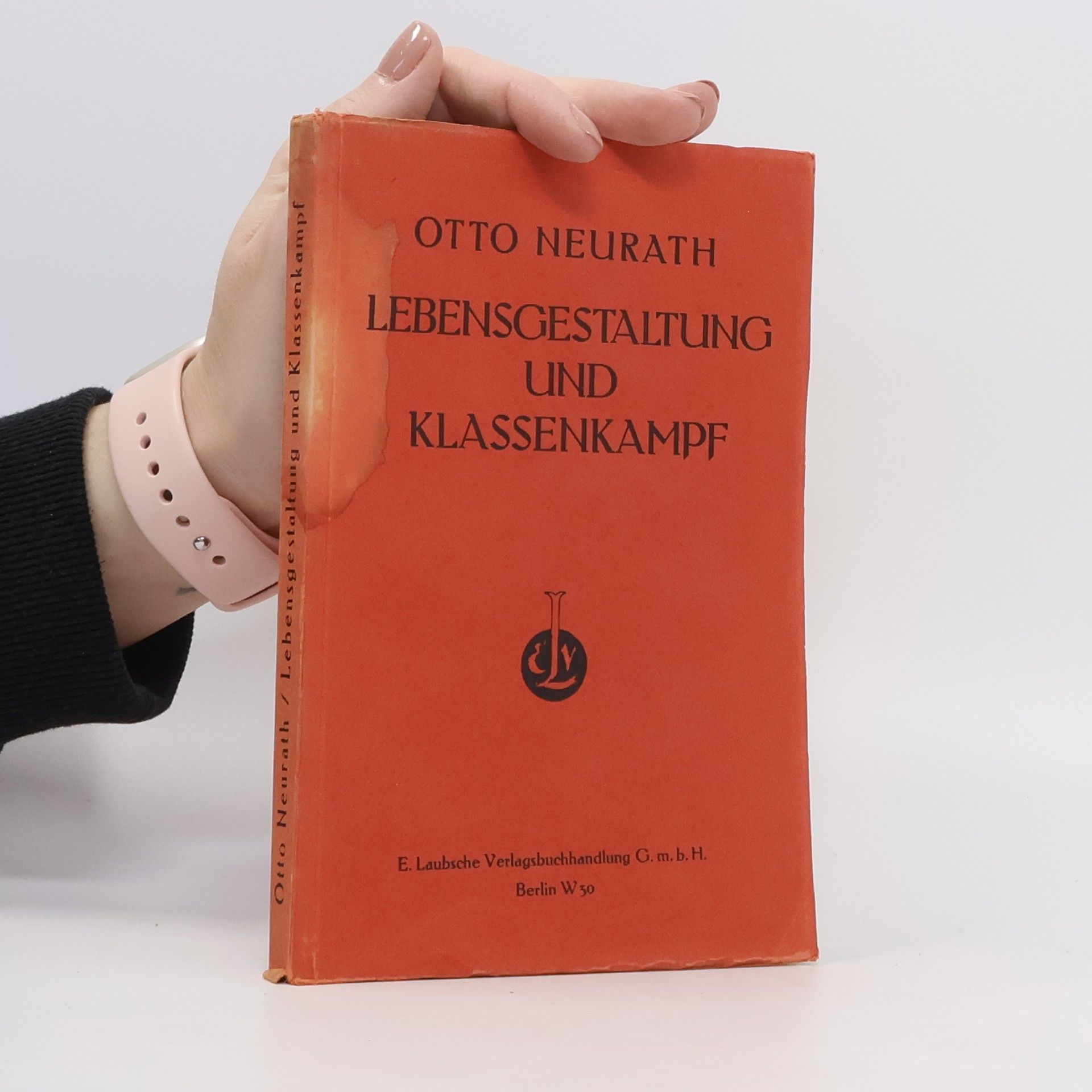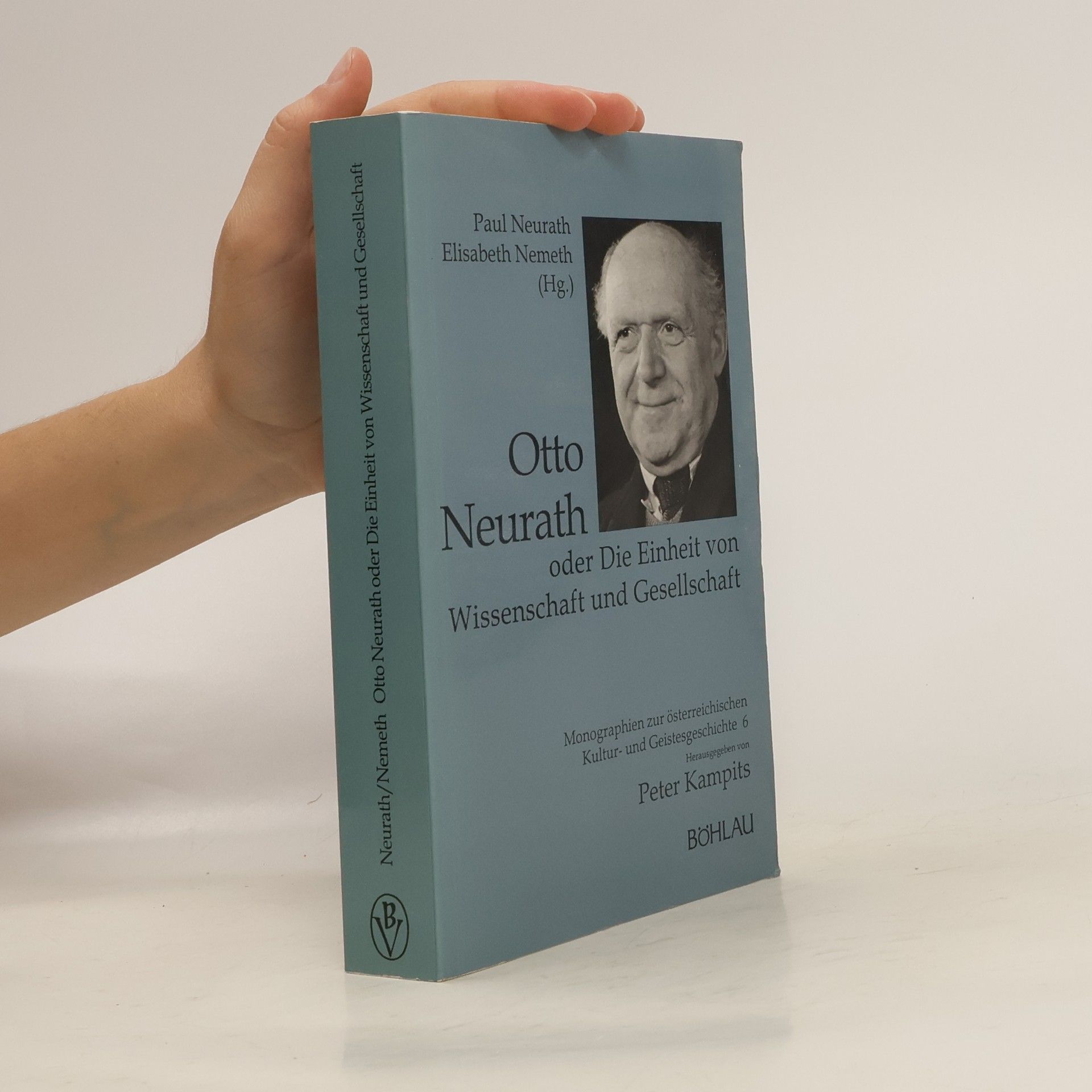This book makes available for the first time in English a substantial part of Otto Neurath's economic writings. The essays and small monographs translated here extend from his student years to his last ever finished piece. They chart not only Neurath's varied interests in the economic history of antiquity, in war economics and schemes for the socialisation of peacetime economies, in the theory of welfare measures and social indicators and in issues of the theory of collective choice, but also show his philosophical interests emerging in his contributions to seminal debates of the German Social Policy Association. This volume shows that Neurath's important contributions to the socialist calculation debate are but one aspect of a many-sided and original oeuvre. The translations are preceded by an introductory essay by one of the editors which contextualises the selections by locating them in the various debates of the time that provided their original setting. This book is of interest to economists, philosophers of social science and of economics as well as to historians of philosophy of science and of analytic philosophy.
Otto Neurath Libros
Este filósofo de la ciencia, sociólogo y economista político austriaco destacó por interpretar el pensamiento lógico-positivista como base para la teoría social y económica conductista. Antes de huir de su país natal en 1934, Neurath fue una figura destacada del Círculo de Viena, que defendió la «actitud científica» y el movimiento de la Unidad de la Ciencia. Negó cualquier valor a la filosofía más allá de su papel dentro y para la ciencia, afirmando que la ciencia misma no era un sistema de conocimiento lógicamente fijo y firmemente fundado en la experiencia, sino que implicaba intrínsecamente incertidumbre, decisión y cooperación. Desde esta perspectiva naturalista, holista y pragmatista, la filosofía examina las condiciones que hacen posible la ciencia, concibiéndola como una empresa fundamentalmente social e histórica. Su interés por la vida social y el bienestar de los individuos influyó constantemente en sus puntos de vista sobre el lenguaje, el método y la unidad de la ciencia, subrayando que teorizar sobre la sociedad es inseparable de teorizar para y dentro de ella. Los temas de la economía política y la educación visual, basados en el lenguaje ISOTYPE, son legados concretos que han recuperado relevancia, urgencia e interés.






The philosophical writings of Otto Neurath, and their central themes, have been described many times, by Carnap in his authobiographical essay, by Ayer and Morris and Kraft decades ago, by Haller and Hegselmann and Nemeth and others in recent years. How extraordinary Neurath's insights were, even when they perhaps were more to be seen as conjectures, aperfus, philosophical hypotheses, tools to be taken up and used in the practical workshop of life; and how prescient he was. A few examples may be (1) Neurath's 1912 lecture on the conceptual critique of the idea of a pleasure maximum [ON 50] substantially anticipates the development of aspects of analytical ethics in mid-century. (2) Neurath's 1915 paper on alternative hypotheses, and systems of hypotheses, within the science of physical optics [ON 81] gives a lucid account of the historically-developed clashing theories of light, their un realized further possibilities, and the implied contingencies of theory survival in science, all within his framework that antedates not only the quite similar work of Kuhn so many years later but also of the Vienna Circle too. (3) Neurath's subsequent paper of 1916 investigates the inadequacies of various attempts to classify systems of hypotheses [ON 82, and this volume], and sets forth a pioneering conception of the metatheoretical task of scientific philosophy.
The book presents a significant collection of Otto Neurath's economic writings, spanning from his student years to his final work. It explores his diverse interests in economic history, war economics, socialization of economies, welfare theory, and collective choice. Additionally, it highlights his philosophical contributions to key debates within the German Social Policy Association. An introductory essay contextualizes these writings within their historical debates, showcasing Neurath's multifaceted and original contributions beyond just the socialist calculation debate.
International Picture Language: The First Rules of Isotype
- 130 páginas
- 5 horas de lectura
Recognized for its cultural significance, this work contributes to the foundational knowledge of civilization. Scholars have selected it for its importance, highlighting its relevance and impact on understanding historical and societal contexts.
Otto Neurath's influential book, "Modern Man in the Making," published in 1939, explores the state of the world in the 1930s through text and illustrations. It introduces Isotype, a visual language for simplifying complex information. The book promotes accessible knowledge and has inspired generations of designers, making it a precursor to modern infographics.
Logický pozitivizmus
- 540 páginas
- 19 horas de lectura
Tretí zväzok Malej antológie filozofie 20. storočia obsahuje projekty filozofie a filozofie vedy, ktoré vznikli v prvých desaťročiach dvadsiateho storočia a mali charakter scientizácie možného chápania filozofie. Pre toto obdobie je typická predstava, že takmer všekty dôležité problémy súčasnosti nemajú bez využitia vedy veľké šance na úspech. V tomto zväzku sa čitateľ zoznámi s názormi M. Schlicka, R. Carnapa, O. Neuhartha, C. G. Hempela, H. Reichenbacha a A. J. Ayera. editori: F. Mihina, T. Sedová, M. Zouhar
Die kulturelle Bedeutung dieses Werkes wird von Wissenschaftlern anerkannt, da es einen wichtigen Beitrag zum Wissen der Zivilisation leistet. Es wurde aus dem Originalartefakt reproduziert und bleibt so nah wie möglich am ursprünglichen Inhalt. Dabei sind die originalen Urheberrechtsvermerke, Bibliotheksstempel und andere Notationen erhalten geblieben, die das Werk mit bedeutenden Bibliotheken weltweit verbinden.

